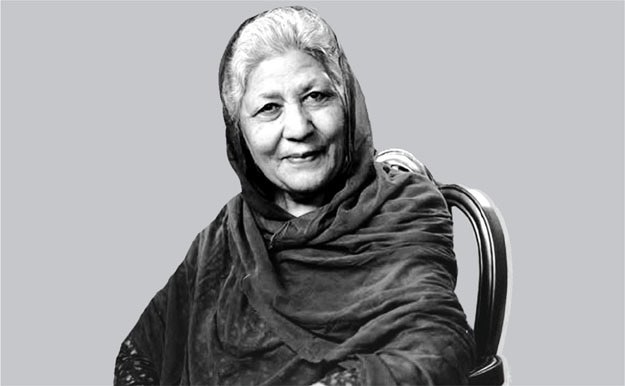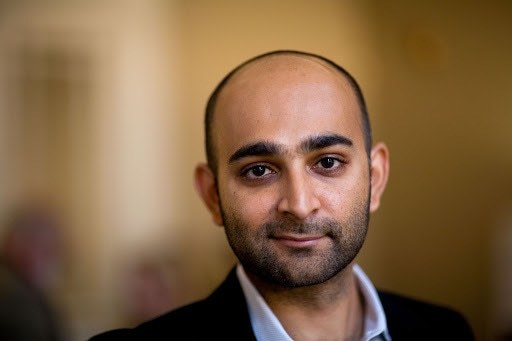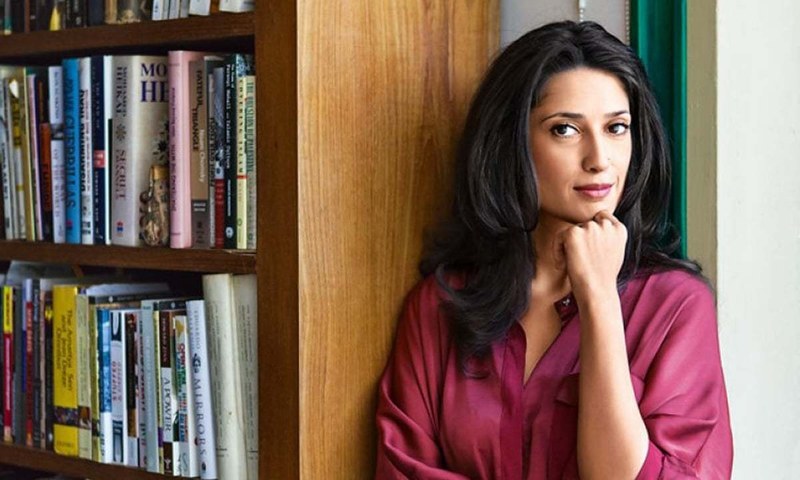Faiz Ahmad Faiz
Hailing from Sialkot, the city of the great Allama Muhammad Iqbal, Faiz Ahmad Faiz MBE NI (13 February 1911 - 20 November 1984) had access to the best education throughout his youth. While studying at Lahore’s Government College, the highest ranking college at the time, Faiz Ahmad Faiz wrote his initial poems, including Aik Rahguzar Par and Teen Manzar.

In 1935, the budding author was offered employment at the MAO College, Amritsar as an English lecturer, where he worked till 1940. In 1941, Faiz married Alys, with whom he shared ideals and values despite belonging to different parts of the world. It was Alys to whom he dedicated his second poetry collection, Dast-i-Saba (The Breeze’s Hand). During the era of Partition, Faiz worked as editor of The Pakistan Times, and covered the most gruesome aspects of the separation of India and Pakistan unhesitatingly. The most profound poem to emerge from this era of grief was Subh-i-Aazaadi.
Due to the Rawalpindi Conspiracy case which caused Faiz to spend four painful years in prison, the editor and poet published Dast-i-Saba (The Breeze’s Hand) and Zindaan Nama (Prison Book), two poetry collections that contain some of his greatest works. Needless to say, by the time Faiz was released from prison in 1955, he had gained immense popularity.
In 1962, despite having suffered a mild heart attack and being under surveillance by General Ayub’s military government, Faiz travelled to Moscow to receive the Lenin Peace Prize where his speech, a wonderful piece of humanist literature received thunderous applause and also served as a preface to his collection Dast-i-tah-i-Sang (Hand under the rock).
During Zulfiqar Ali Bhutto’s era from 1965 - 1977, Faiz served various roles in the government, and after Bhutto’s execution, escaped Pakistan and sought asylum in Beirut, Lebanon. However, due to the renewal of the Beirut War in 1982, Faiz returned to Lahore, where he passed away in 1984 due to poor health shortly after hearing he had been nominated for the Nobel Prize for Literature.
Bano Qudsia
Bano Qudsia (28 November 1928 – 4 February 2017) started her illustrious career as a writer while still in fifth grade, when she first started writing short stories. She completed her education from the illustrious Kinnaird College, after which she continued to earn a Master's degree in Urdu literature from Government College University, Lahore in 1951. She is known to have lived a happily married life with fellow writer, famous in his own right, Ashfaq Ahmed, whom she met during her time at GCU. Between them, they have written over 60 titles,countless plays and gave birth to three sons. It was also due to her husband’s recognition of her talent that he encouraged her to begin writing regularly, with her novel Wamandgi Shoq while she was still doing her MA. However, it was Raja Gidh that truly brought fame to Bano Qudsia in 1981, which still remains a favorite classic in Urdu literature. While there were many other novels such as Moum ki Galiyan and Amber Bail,along with famous plays such as Aadhi Baat, her novel Haasil Ghaat which was published in 2005 received criticism for including English slang in a traditional Urdu narrative, but later on this style of writing was adopted by many Pakistani writers.

In 1983, Qudsia Bano was honored with the Sitara-e-Imtiaz by the government of Pakistan, and a few decades later with the Hilal-e-Imtiaz in 2010 for her services in literature. However, what really stands as a testament to the lifelong love Qudsia Bano had for her husband is contained in Rah E Rawaan, an autobiography initiated by Ashfaq Ahmed with the title Baba Saheba, but was only half-completed by the time of his death. Qudsia Bano took it upon herself to complete her husband’s last work, and the clear difference between their writing styles and the emotions behind the words have touched the hearts of many a reader and elevated this literary couple’s love story to last as long as literature does. Even though she passed away at the age of 88 in 2017, Bano Apa’s work will keep her alive in the hearts of her readers forever.
Mohsin Hamid
Born in 1971 to a Punjabi-Kashmiri household in Pakistan, Mohsin Hamid spent his childhood in Lahore, but the pursuit of education and employment led him to the United States and the United Kingdom, while the love of travel has led him to places such as the Greek islands, Amsterdam and Berlin. Perhaps it is this very continent-jumping restlessness and his own life experiences that fuel his passion for writing and shape the personality of his characters, among other things.

During his time at Princeton University in America, Hamid began working on the draft of Moth Smoke, his very first novel which he continued to write post graduation from Harvard Law School while working at a law firm in order to pay off his student loans. Published in 2000, Moth Smoke was highly acclaimed not just in Pakistan, but in India as well, probably because aspects of the novel’s characters were so relatable and the challenges he faced in a fictional world touched the hearts of readers worldwide. The book was shortlisted for the PEN/Hemingway Award in the US, was adapted for a movie titled Daira (2002), which starred famous actors Adnan Siddiqui and Aijazz Aslam, and also as an operetta in Italy!
While shuttling between the UK and Pakistan, Hamid published his second novel The Reluctant Fundamentalist in 2007, which featured a monologue which the main character used to address a listener who is never directly heard from. The author accredited The Fall by Albert Camus as his inspiration for this million-copy international bestseller, which also won the Anisfield-Wolf Book Award and the Asian American Literary Award. How to Get Filthy Rich in Rising Asia was the third novel published by Mohsin Hamid in 2013 which was a profound novel with a healthy dose of playfulness that took form based on the countless self-help books devoured by millions in pursuit of their goals His latest novel Exit West is based on two female characters and shares their story living in a world inhabited by migrants, and was even shortlisted for the famous Booker Prize in 2017.
Fatima Bhutto
Born in 1982 to the late politician Murtaza Bhutto, son of former Pakistani Prime Minister Zulfiqar Ali Bhutto who founded the Pakistan People’s Party, and brother of Pakistan’s first female Prime Minister, the late Mohtarma Benazir Bhutto, Fatima Bhutto hails from an extremely affluent and influential Pakistani family. However, Fatima has made a name for herself as a beloved author and distanced herself from her political family, especially after the death of her father. Her non-fiction book Song of Blood and Sword which was published in 2010 is actually about her family.

Fatima received her secondary education from the Karachi American School, after which she went to the United States and attended the Barnard College where she graduated summa cum laude and then pursued her Masters degree from the SOAS, University of London in 2005, where she wrote her dissertation on the resistance movement in Pakistan.
However, Fatima’s earliest publication was at the age of 15 with her first book, Whispers of The Desert, followed by 8.50 a.m. 8 October 2005, which records the accounts of those affected by the devastating October 2005 earthquake in Kashmir. Her first fictional work The Shadow of The Crescent Moon was published in 2013, which gained worldwide acclaim, and in 2015 she published a short story e-book titled Democracy. In 2019, her second work of fiction The Runaways gained even more fame than her first fictional book, and in the same year she published New Kings of the World: Dispatches from Bollywood, Dizi and K-Pop, which was heralded as an insightful introduction to the various pop phenomenon in Asia. Along with all of her own works, Fatima has also written for publications such as The News and The Guardian.
Born and raised in Karachi, Nazia has a passion for food and love for language, both of which have helped her become who she is today. A free spirit, the author is a part-time English language teacher and editorial consultant. PC (Pre-Corona) you could have found Nazia at her favorite eateries indulging in cuisines ranging from delicious bun kebabs to the finest sushi Karachi has to offer. Nowadays, she tends to stay safe and fully vaccinated. Instagram: https://www.instagram.com/nz_latif/ Twitter: https://twitter.com/LatifNazia